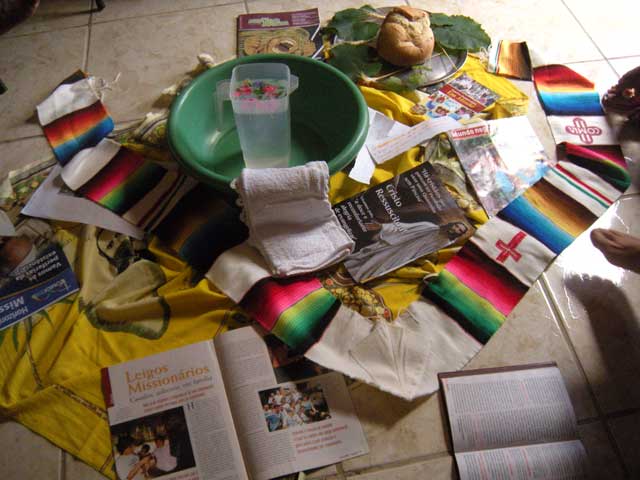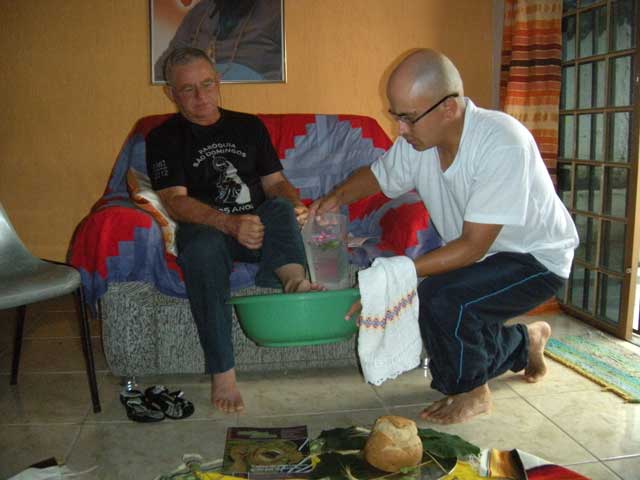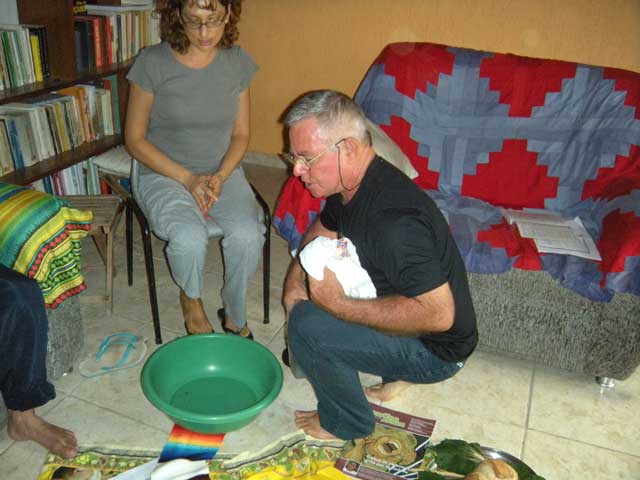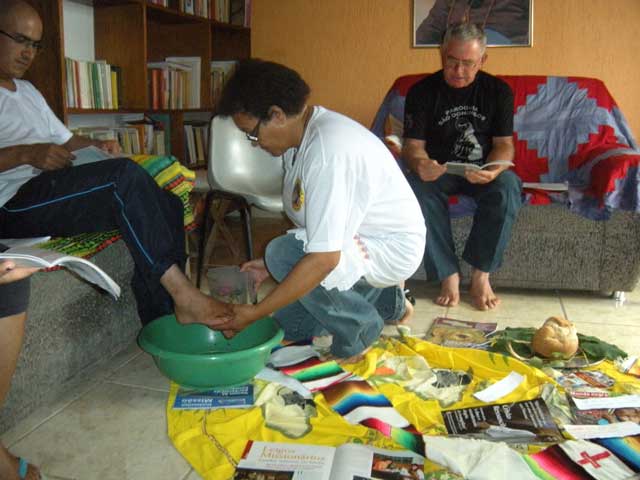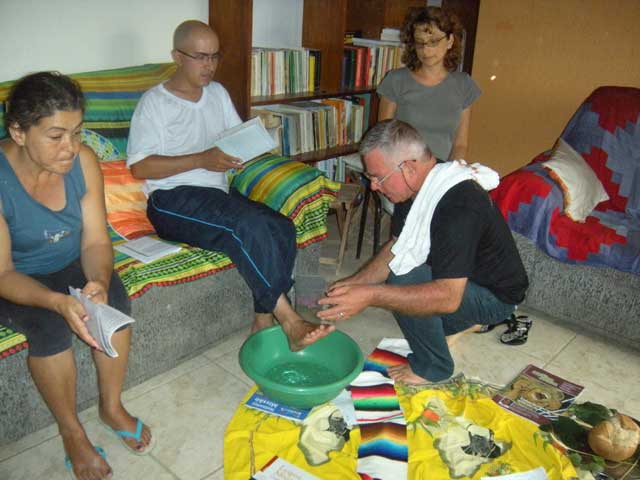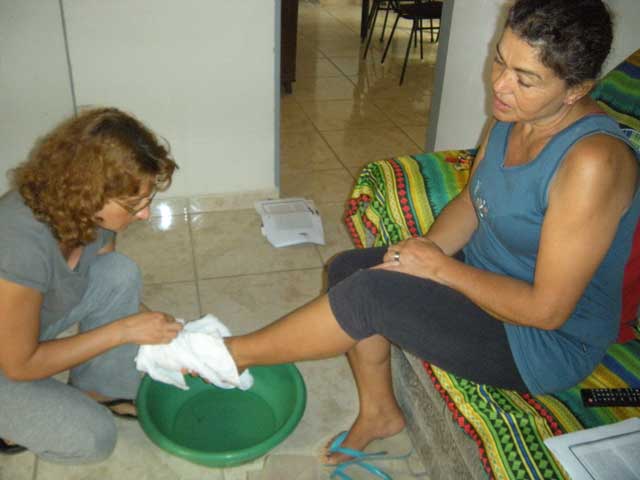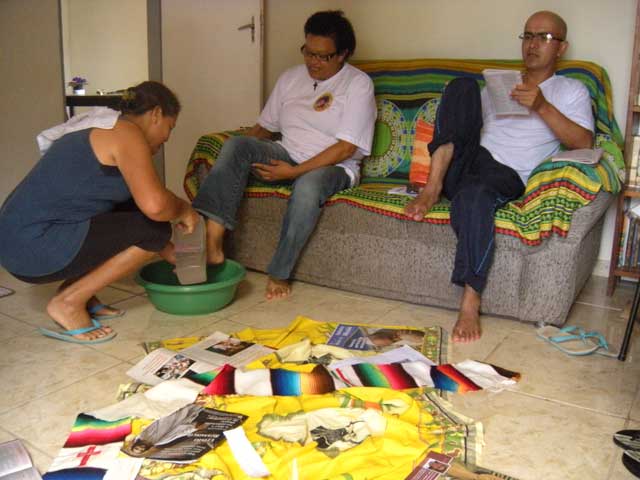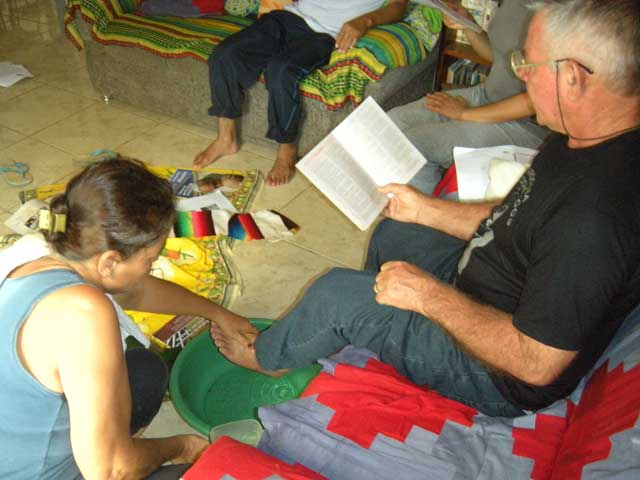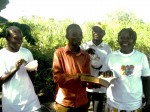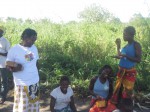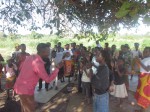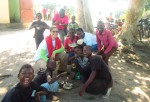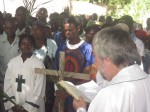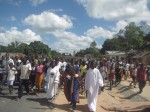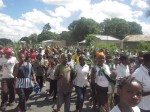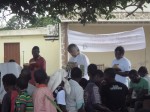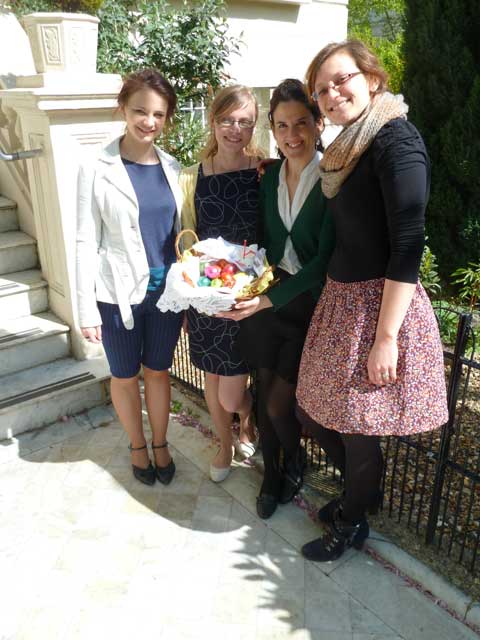“The mission allows us to understand the resurrection as the miracle of a life that cannot be destroyed by selfishness and ambition without limits, but that asserts itself as a joy which rises from the heart of God that we carry in the frailty of our human being. For this reason there is no real mission that does not involve death in us, a death which is not synonymous with destruction, but which turns into an opportunity to be finally reborn to the true life that only the Lord can give us as a gift of the Father”.
These are the closing words of the Easter message sent by Fr. Enrique Sánchez González to all his Comboni confreres.
Below we publish the message.
Happy Easter to all.

MISSION, DEATH AND RESURRECTION
“The great Works of God are only born at the foot of Calvary”
(Writings 2325)
The celebration of Easter, mystery par excellence, which makes us enter into the death that marks our humanity and into the life without limits, a gift of God, that in the resurrection of the Lord Jesus makes us live in a time of hope and faith.
How to live this mystery so that it becomes a source of life in this time of contrasts, where the dryness of our fragility is compared with the invitation to live the joy of rediscovering the ever new presence of the Lord who, from the depths of the empty grave, reminds us that He is alive and present in our midst?
Life and death, past and future, pain and joy, darkness and light, war and peace, love and hate. How many other combinations, in addition to these, mark our existence, our human travelling on the divine paths that lead us to that eternity which we cannot define, much less say, with the poor words of our daily actions?
Immersed in the frantic rush of our work and our efforts to change the world, each one goes through the entire day with his vision, his interests, his ideas, and his plans. With the claim to possess the whole truth, to know and to manage everything even more than others.
We live with an arrogance that has become infectious, that makes no distinction between rich and poor, great and small. We all feel entitled to criticize, point out the limitations, faults and sins of others. The criteria of distrust, suspicion, advantage and competition are trying to impose themselves while trust, sharing, support of others, mercy and forgiveness sound like music that disturbs the ear and does not penetrate the heart.
Isn’t this the scenario in which we find ourselves as we live the mission as an ancient and ever new proposal that prevents us from getting lost in the tragic, pessimistic and depressing vision of the present day of our history? Isn’t, instead, the mission lived in silence, in a hidden way, in anonymity that makes us “hidden stones” that speak about a life which does not make noise and does not need to be advertised? Isn’t this the mission that makes us live intimately with the mystery of a death that becomes life?
A death that is not the last word
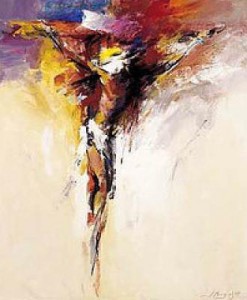
Today, more than ever, we are confronted with situations that go beyond the imaginable, news stories that become yellow, red and of all colours.
Violence and war destroy entire populations and condemn millions of people to flee, and no one knows where, as refugees, displaced persons, migrants or just captives in their own countries. These images have become the choreography of TV shows that transform such human drama into telenovelas which are stories really taking place but presented to us as if they were the winner of an Oscar.
Fortunately, the mission allows us instead to tell these stories in another way: it becomes impossible to silence the testimony of those who have seen the destruction and death not through the screen but on the face and bodies of brothers and sisters with whom until shortly before we were working, celebrating the Eucharist, studying in their small schools with thatched roofs, celebrating the life and the joy of being in this world.
We no longer see Christ who lies dead on the wooden cross. As missionaries we have discovered, through the eyes and the deep pain of so many of our confreres, that today the Lord climbs upon the cross of the indifference of the powerful people of our time, of those who forget about the poor, of those who promote the exaltation of power and the idolatry of money.
The riots, protests and clashes gather the desperate cry of so many brothers and sisters who cannot manage any longer, do not know how to survive in a world that seems to deny those minimum conditions necessary to call life certain types of existence.
The great temptation is to fall into the trap of thinking that the shadow of death has taken hold of our time and has asserted itself as a criterion to govern our history.
And how many more deaths do we find closer to us? Is it not death the destruction of the missions in which we work in South Sudan, or the violence that does not end in Central Africa, where there are so many people still forced to flee their homes in fear of their lives?
Is it not death the decrease in the number of missionaries in our Institute? Or our having to give up a missionary presence where we can clearly see that such presence could do so much good? And is it not true that the closing of communities is experienced by us as an actual funeral, because we have no missionaries to spare?
Don’t we perhaps feel like dying when we are refused permission to enter a country or we are denied the opportunity to continue our service to the poor, to the local Church, simply due to the ideology of the politicians of the moment? Is it not death the mediocrity that threatens us every time we try to organize our lives according to our own interests, when we seek excuses to justify our unwillingness to leave for the mission, to obey, to accept the mission as a gift that should be received without preconditions?
It is indeed the mission that introduces and accompanies us into the mystery of death, because when it is lived in all honesty, we cannot say anything other than what the Lord himself shouted from the depths of his spirit, ‘Father, your will be done’.
St. Daniel Comboni says it with words that describe the scenario he contemplated in the heart of Africa: “Confronted by so many afflictions, among the mountains of crosses and sorrows… the Catholic missionary’s heart has been shaken, but this is no reason for him to despair; strength, courage and hope can never desert him.” (W 5646).
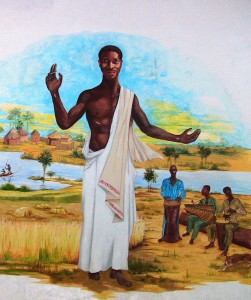 The mission introduces us to the mystery and beauty of the resurrection
The mission introduces us to the mystery and beauty of the resurrection
There is an afterlife after death which for the mission is the foundation of everything, the guarantee of a future that is not built on the basis of our resources, ability or strength.
The mission makes us touch and contemplate with our own eyes the ever present project of God, who never rests, who tries to build a humanity in which we can all discover ourselves as brothers and sisters.
God is at work and, despite our walking through paths that do not lead to life, He does not give up his dream of seeing one day all his sons and daughters gathered in a family where there is no more need to stick labels of religions, ideologies, political preferences, races, cultures or colours.
The Risen Christ reminds us that for God the time has come, but that He is not in a hurry, that He will always be willing to wait for our arrival, hoping that in this time of waiting, there will not be a waste of lives sacrificed because of our inability to think less with the head and more with the heart.
The mission allows us to understand the resurrection as the miracle of a life that cannot be destroyed by selfishness and ambition without limits, but that asserts itself as a joy which rises from the heart of God that we carry in the frailty of our human being.
For this reason there is no real mission that does not involve death in us, a death which is not synonymous with destruction, but which turns into an opportunity to be finally reborn to the true life that only the Lord can give us as a gift of the Father.
“He himself bore our sins in his body on the tree, that we, having died to sins, might live to righteousness. In fact we have been healed by his wounds” (1Pt 2:24-25).
Happy Easter to all.
Fr. Enrique Sánchez G., mccj Superior General
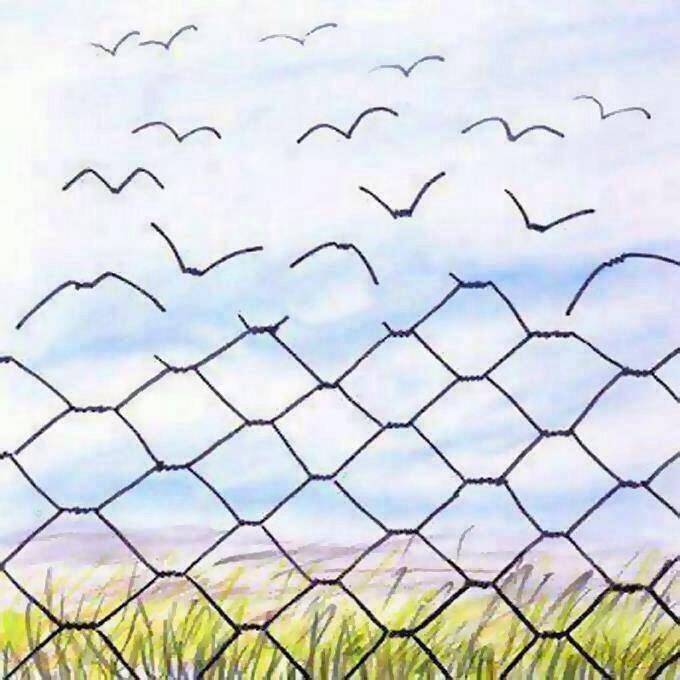 Like every year, the CLM of Spain have gathered as a community to celebrate Easter. This year we wanted to live these days in “code of hospitality”, because the experience of hospitality and welcome in our world is a challenge for us. In these days of meeting we wanted to allow ourselves to be touched by Jesus “is at our door and knocks” to welcome HIM in our neediest brothers.
Like every year, the CLM of Spain have gathered as a community to celebrate Easter. This year we wanted to live these days in “code of hospitality”, because the experience of hospitality and welcome in our world is a challenge for us. In these days of meeting we wanted to allow ourselves to be touched by Jesus “is at our door and knocks” to welcome HIM in our neediest brothers.



